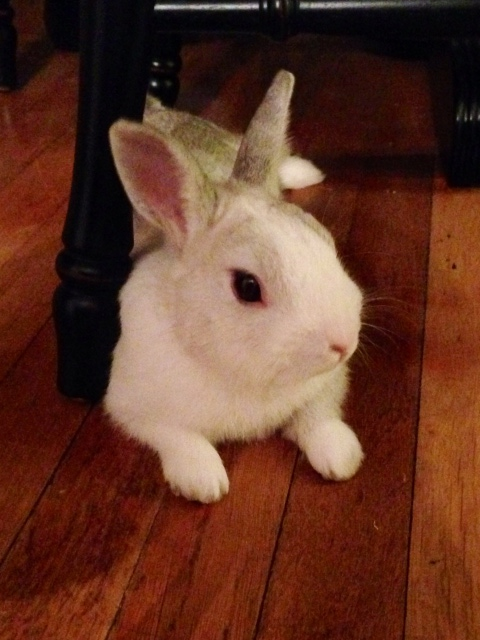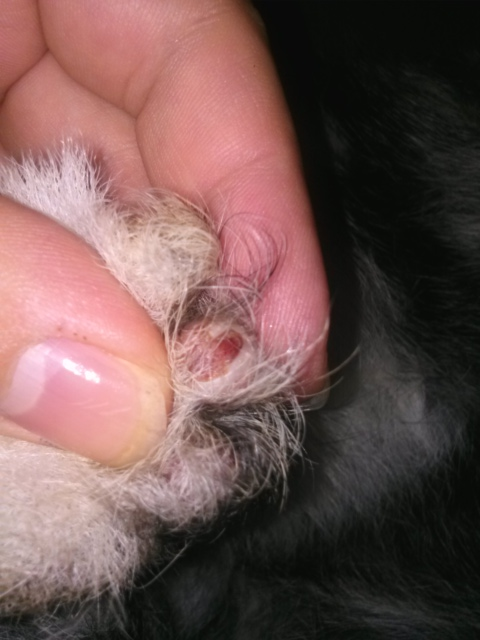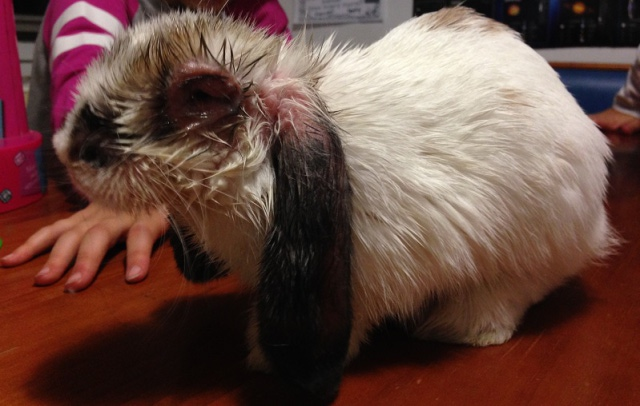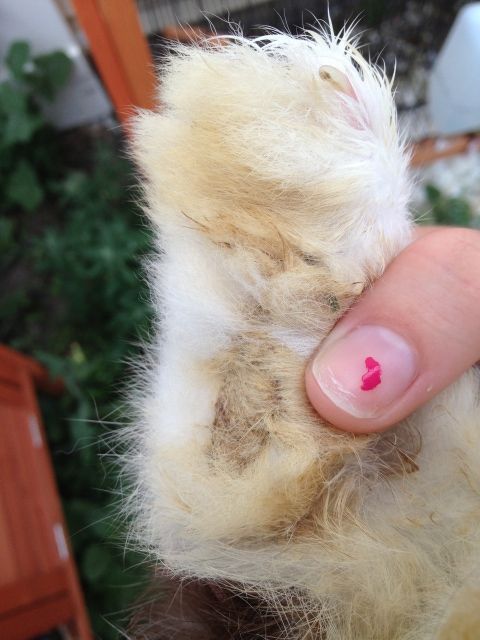QuestionHi Dana,
I have 2 rabbits. The first one I got was short-haired. With this one, my allergies did not bother me. A few months later, I got the second one, some sort of wooly angora mix. He only has a front mane. After getting this 2nd rabbit my allergies got alot worse. I am already fully medicated and run a HEPA filter. Before I considered swapping this rabbit for a short-haired one, I wanted to verify if wooly rabbits indeed do produce a different type of allergan in their dander than do short-haired. I read somewhere that wool rabbits produce a special type of dander that causes mats. If there is no difference in type of allergan, then I would so no point in switching him for a short-haired.
Thanks!
AnswerDear Melinda,
It sounds as if your long-haired rabbit is a Lionhead, a relatively new breed. Each individual rabbit will produce unique proteins, and while you may not be allergic to one rabbit, you might be allergic to another one. But don't assume the rabbit is the source of your allergies. I'll append below a post I send out to people who are considering getting rid of a rabbit because of suspected allergies.
Another option would be to groom the bunny and trim his fur short, reducing the allergen surface area. (In many cases where an animal is the cause of an allergy, it's not the fur so much as the saliva proteins on the fur from self-grooming.) There are also ways to reduce the allergen load by wiping him down with a damp washcloth to remove those proteins, and keeping his fur short.
I would hate to see this poor bunny lose his home when there are many things you can try first.
I hope some of this helps, as well as the post below.
Dana
about placing pet rabbits is that one or more family members have
"become allergic" to the rabbit(s).
My first question is always, "Have the allergies been confirmed by an
allergist? Unfortunately, its seems to be the automatic response for
some physicians to assume that a pet is the source of an allergy
problem, when the pets may not be the problem at all. I would urge
you to get a second opinion from an allergist who will do actual
*tests* on whichever family members appear to have problems. Unless
allergy tests are done with *rabbit antigens*, you will not be able to
truly know for sure whether the bunny is the cause of the problem. I
am sure that the whole family loves the bunny enough to be sure that
s/he is the source of allergies before drastic action (probably
resulting in the death of the bunny) is taken.
The above is confirmed by one of the nation's leading allergists in an
article at:
http://www.msnbc..com/news/718394.asp
Once it has been determined that the rabbit and/or rabbit products are
the source of the problem, the situation still need not end in
abandoning the bunny to an uncertain fate. I know how difficult
this situation is, and how uncomfortable, because I myself suffer from
*terrible* allergies associated with my rabbits (the timothy hay in
the house).
I thought my life was doomed to be a world of coughing, sneezing and
itching until I found a near miracle. I have been able to
*completely* alleviate all symptoms *without medication*
by installing some very powerful air purifiers in my home. The
brand I have is made by Alpine (which is the same type used in many
hospitals), and they have saved many a pet-lover from having to part
with a beloved pet. If you can't find (or don't want to spent the $
on) Alpine, excellent alternatives exist as close as your local
Target, which sells a variety of physician-approved HEPA filters.
They are quiet, effective and well worth the $80 or so they cost. (I
have one in my office, where there was a horrific mold problem, and I
no longer spend the days coughing my lungs out.)
An air purifier will really make a HUGE difference in your family's
quality of life, rabbits or no. I would highly recommend this, just
for your family's health, safety and your peace of mind, if anyone in
the household is susceptible to allergens in general, or has
respiratory problems.
If you feel that you truly cannot make the adjustments to your
lifestyle as suggested above, I hope you will find some useful
information in the following post, which explains how to find a safe
home for rabbits. It is not easy. Rabbits are not as valued in our
society as dogs and cats (which isn't saying much, considering how
many thousands are euthanized in shelters every day), and it is more
difficult to find safe haven for them. This week alone, I received 30
"dump" calls from people who no longer want to care for their rabbits.
I simply cannot take them all, and this is why I work so hard to make
sure that everyone knows there are wonderful alternatives to giving up
the bunny to death (and this is far more common than a good adoption;
I am telling you this onlyh so you know the truth of the matter).
I wish you and your rabbit good health and good fortune, and I hope
that with this information, you can stay together as a family, as
you were meant to be.
Sincerely,
Dana Krempels, Ph.D.
University of Miami Biology Department
House Rabbit Society of Miami, FL

 I found worms in my bunnies cage this morning!
Question
The worms I found in h
This morning I w
I found worms in my bunnies cage this morning!
Question
The worms I found in h
This morning I w
 Help! Neutered bunny still spraying me!!
Question
Fritz
Help!! Im a new bunny owner and I
Help! Neutered bunny still spraying me!!
Question
Fritz
Help!! Im a new bunny owner and I
 Very big problem with Rabbits nails
QuestionQUESTION: Hello, I am at a loss at to what is h
Very big problem with Rabbits nails
QuestionQUESTION: Hello, I am at a loss at to what is h
 My rabbit has Myxomatosis - day 14
Question
Bunny
Hi there,
My 4 month old dwarf fl
My rabbit has Myxomatosis - day 14
Question
Bunny
Hi there,
My 4 month old dwarf fl
 Hock on foot HELP
Question
foot
Hey guys,
I bought this rabbit in
Hock on foot HELP
Question
foot
Hey guys,
I bought this rabbit in